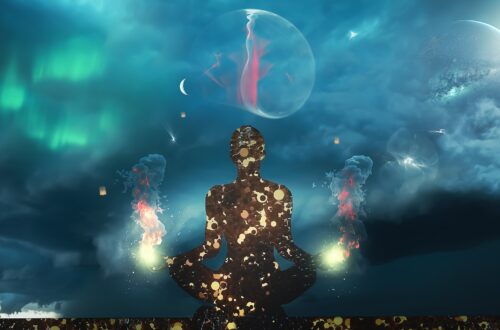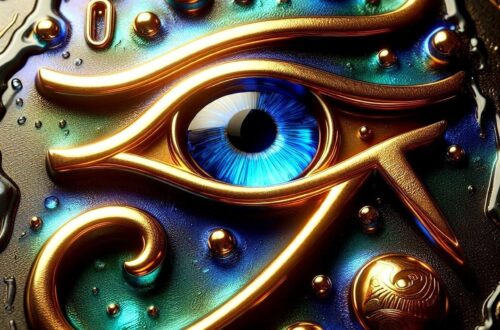
Do Christians Really Believe in Free Will?
Allan Watts asked the question, many of us do,
“Are humans free beings or determined beings?”
Christians maintain that human beings have free will, however corrupted and fallen we are. On the other hand, science, through medicine, psychology, and all the behavioral sciences, maintain that humans are not free, but determined.
Humans must be responsible for their actions, and the only way for that to occur is for humans to have free will. Without free will, humans are just automatons who can’t be held responsible because their actions are out of their control. Christians need humans to have free will in order to explain where sin and evil come from.
The Outside and the Inside View
Watts says in order to understand this split between Free Will and Determinism, we have to examine them from two perspectives: the outside view and the inside view.
The outside view is how we appear to others when they look at us. It can also be the view of the physician or neurologist studying the inside of our bodies.
From this view, our bodies and organs can be analyzed, using a mechanical description, as an arrangement of parts. Thus our behavior and the functioning of our parts, being fairly predictable, can be made into a science, reducing us to complex machines.
However, from the inside view, we don’t feel our thinking and feeling is such a mechanistic process. We don’t experience our thinking as just the activity of synapses and neurons. We don’t feel we are the mechanism the outside view relegates us to. From the inside, we feel we are something quite different.
Both Free Will and Determinism
So, Watts believes we have these two contradictory views of Free Will and Determinism. He also believes, that while they are contradictory, both have elements of truth in them, so we need to find a way to combine them. He compares them to the particle/wave duality in quantum physics. They are mutually exclusive, yet both are true.
Watts gives the example of a court case where someone has been charged with a serious crime. However, it also turns out this person has had a very difficult childhood and life. He never had the proper parenting and education required to make him a responsible citizen. Sometimes outer circumstances can lead humans to do crazy things. While that doesn’t excuse his actions, it can help explain them. We can then take this information into account as we try and construct a more fair and just society where actions like this become less common.
However, outer circumstances can also be taken too far and used as an excuse. For example, in another court case, suppose a person is charged with a crime, and after having studied Freud a bit, blames his parents, saying they raised him improperly. They messed him up, giving him all kinds of complexes, eventually leading him to commit this crime. He says, if anybody should be going to jail for this crime, it should be his parents.
In short, sometimes one’s outer circumstances do a play a significant role in their actions, but sometimes they don’t. So how do we hold these two views simultaneously?
Watts then brings up the point, echoed by the Russian mystic and philosopher, Georg Gurdjieff that most humans are determined, being little more than stimulus/response machines, never having tasted true freedom.
The Christian View of Freedom is Flawed
Watts goes on to say that the Christian view of freedom hasn’t really helped with this dilemma.
He says, the Christian view of God’s nature is love which he/she gives freely, shining it on all finite beings. But these finite beings must themselves be free to accept that love and return it back to God. True love cannot be determined or demanded, but most always be given freely. Thus the Christian need for free will.
He then cites the example of Lucifer, who used his freedom not to love God, but to instead, love himself. The consequence of this free choice was eternal damnation.
So Christianity gives us the free will not to love God, but the price of that choice is eternal damnation. Is that then, really free will?
Is this Really a Free Election?
Watts compares it to an election in a country where a government tells the people they are free to vote for whomever they choose. However, if they vote against the government, they will be arrested, thrown into a concentration camp, and eventually executed. Is that a free election? Are the people free to vote for whomever they choose?
Watts maintains this is not a free choice, so concludes that the Christian view of freedom is flawed.
He asks the question,
“What if the punishment for the sin of not loving God was just that the person didn’t love God?
Christopher Marlowe’s Dr. Faustus
He then looks at Christopher Marlowe’s play, Dr. Faustus. Where Mephistopheles, when asked where hell is, replies it’s here, saying,
“Even earthly existence is hell if one has experienced the beatific vision and seen the face of God.”
In other words, for one who has experienced the beatific vision and seen the face of God, even this earthly paradise is hell if they have been excluded from this vision.
Watts concludes that because Christianity views God, like a judge in a courtroom, as a punisher, they are not talking about true freedom at all. He then asks,
“Can we come up with a conception of freedom that is free, on the one hand, from a punishing God, and on the other hand, from an absolutely overriding mechanistic psychological determinism?”
This, Watts believes, is what Christianity must develop, if their concept of free will is to have any relevance at all.
In other words, if Christianity wants people to freely choose to love God, they ought to focus more on encouraging people to have their own transcendent experiences, and not focus so much on the punishment of eternal damnation.
To learn more about the magic of the universe: Click this link: The Magical Universe.




